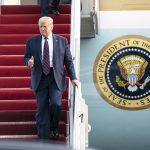President Trump’s latest move to withdraw the United States from the World Health Organization (WHO) has stirred up quite the controversy, especially among those who seem to think the U.S. should keep willingly flushing cash down the toilet of international bureaucracy. Experts claim that this departure will hinder the sharing of disease intelligence, but a closer look reveals that perhaps it’s time for a reality check on just how effective the WHO has really been.
With Trump pulling out the biggest financial support the WHO has ever seen, member countries may finally be forced to confront the glaring issues that arose during the COVID-19 crisis. Many have pointed out that the organization’s buddy-buddy relationship with China may have played a significant role in its colossal mishandling of the pandemic. The fact that the WHO was slow to declare a public health emergency while China was covering up critical information raises serious questions about its effectiveness—yet somehow, it’s the U.S. that’s now under fire for seeking a way out.
Brett D. Schaefer from The Heritage Foundation believes there’s a silver lining to this withdrawal. He notes that it opens the door for other nations and the WHO to deal with Trump’s grievances. While some might call this a risky move, there’s something refreshing about hitting the reset button on an organization that seems more interested in deflecting blame than actually solving problems.
The numbers paint a stark picture of the financial imbalance at play. The U.S. contributes about 16% of WHO’s budget, which is a staggering $958 million when you factor in voluntary donations. In comparison, China—home of the virus that sparked a global pandemic—only chips in $203 million. To say that the U.S. is getting the short end of the stick here is an understatement, and Trump’s executive order clearly reflects that sentiment by putting an end to the ongoing financial one-sidedness.
U.S. withdrawal may force WHO to address Trump’s objections, delve into COVID-19 originshttps://t.co/vJLokdXAr0 pic.twitter.com/Dk9gsaiWqC
— The Washington Times (@WashTimes) January 22, 2025
Some experts claim that, without involvement in the WHO, America risks losing out on crucial health data regarding global infections. It’s reminiscent of the classic trope of throwing good money after bad. The reality is, the WHO’s nearly disastrous response to COVID-19 has made many Americans question if it’s even worth cooperating with a body that seems more aligned with the interests of other countries—hello, China—rather than with the health and safety of its own citizens.
In a world where viruses respect no borders, it’s indeed important to stay informed about global outbreaks. However, if the U.S. is going to engage with the WHO, it surely must come with strings attached. After all, it’s time for bureaucracies to realize that American taxpayers deserve more than being treated like an ATM that never runs out of cash. If it takes a departure from the WHO to drive home that point, then so be it. It’s time to prioritize American interests first and foremost—every day of the week and twice on Sundays.




